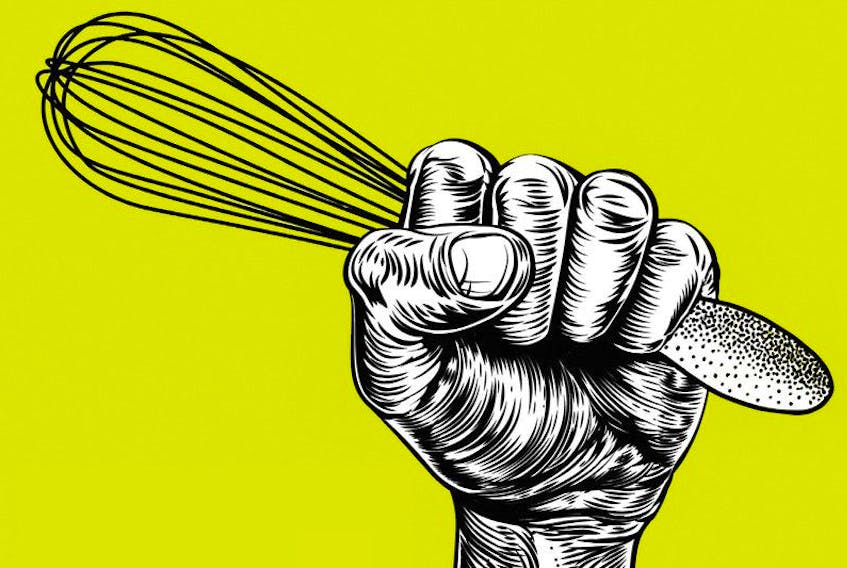By Taylor Stocks
Debate as a conversational form works best when its participants are relatively equal. Pairs should be similar in terms of their level of preparation and skill, their access to resources to interpret information on an issue, and their completion and strength of argument.

High-level competitive debate can be beautiful to watch; formal styles bring debaters closer to parity, which allows for a clash of ideas and a rich exploration of topics. Debaters don’t engage to convince their opponents. Rather, they aim to prove to the judges that their case is the most comprehensive and sound.
Within houses of government, including the House of Assembly in Newfoundland and Labrador, debate is the conversational mode that underpins policy formation. Ideally, the governing party would bring forward a policy to be debated. The opposing party would make a constructive case in contrast to what was offered, as well as refuting the arguments of government. The debate would be moderated by the Speaker of the House, and we, as the citizenry to whom our politicians are beholden, would act as external judges, making the final call on whose case was strongest, and therefore whether or not a certain policy should move ahead.
But we don’t live in this ideal world. Governing and opposition parties rarely have parity within the House of Assembly. This situation results in an imbalance of power and workload, as the few members who are not within the governing party’s caucus are expected to keep tabs not only on cabinet, but on all policy that the party creates. Populism, when fuelled by personalities such as former premier Danny Williams, takes root regardless of supposed safeguards. In addition, citizens do not get the chance to act as judges of quality, save for voting in elections every four years or so, and those participating in smaller interest groups that can spend time and energy organizing around a particular issue. With majority governments, policy is passed regardless of opposition, circumventing the very form of conversation meant to bring rigour to the process.
As it functions in our systems of government, debate has harmful effects on policy formation. We have all grown tired with our politicians who rail against a policy when in opposition, only to adopt it wholeheartedly once in power, therefore undermining the trust that we have in our individuals and systems of decision-making. Debate insists that parties make themselves out to be right and the other to be wrong. This leads to entrenchment within party ideology and dissuades even internal questioning that could lead to more robust policy.
It is no surprise that our House of Assembly has such a difficult time undertaking meaningful and long-lasting change.
Question period, while an important accountability mechanism, contributes to the overplaying of partisanship and reduces what could have been quality debate to digestible sound bites.
These features make long-term policy creation nearly impossible. Problems that will take 10, 20 or 50 years to solve never get the stable, enduring solutions they need. Once a new party gains power, part of their role is to show how wrong the other party was by undermining their policy directions and thus undoing policy that may actually be necessary for long-term change. This reinforces citizen bias towards short-term policy creation, as long-term policy promises are not seen as credible.
Innovation also suffers under government models of debate. Change requires a degree of comfort with the unknown, support in taking risks, and the opportunity to try something new and untested in the local context. Debate, especially within the House of Assembly, insists on having complete arguments, using unknowns against an opposing team, and wielding potential failure as proof of incompetence. This is not in line with recent change theory that instructs us to fail fast and learn quickly, where mechanisms like pilot projects allow for small-scale failure and therefore enable rapid local learning that can inform more high-cost initiatives.
It is no surprise that our House of Assembly has such a difficult time undertaking meaningful and long-lasting change.
This isn’t to say that there is no place for debate in the creation of government policy. There are other conversational modes that, if integrated wisely, would produce more fruitful policy outcomes, allow governments to develop and maintain long-term policy, and foster change and growth within the institution. Dialogue is often juxtaposed with debate as a conversational form that privileges different kinds of behaviour and information. Dialogue encourages its participants to suspend judgment and entrenched party ideology and see the truth in other perspectives, even as we disagree with them. It fosters the co-creation of shared knowledge by blending research from multiple perspectives — for instance, what is true across party divides. This process welcomes unfinished thought as an opportunity to explore new possibilities, which allows for risk-taking and innovation.
Cross-party committees on issues are a good start, but they will continue to embody principles of debate if conscious action is not taken to change the forms of listening, expression and information-sharing within these spaces. Members of the House of Assembly must commit to holding dialogic cross-party spaces where admitting to incompleteness, or saying they do not know something, is seen as an opportunity to learn instead of a chance to prove party incompetence.
In our society, where problems are intractable without co-operation from all stakeholders, dialogic forms of policy formation are essential components to be integrated into government conversational models. Without dialogue to balance debate, our House of Assembly will inevitably follow in the tracks of previous generations.
About the Author
Taylor Stocks (Harris Centre of Regional Policy and Development, Memorial University of Newfoundland) is an institutional activist interested in facilitating long-term community change. With a background in emotional accountability of organizations, strategic systems change and revolutionary politics, their current focus is on designing spaces where words connect vibrantly to action and where people can speak openly about how present power dynamics are affecting their capacity to act.









